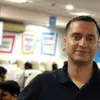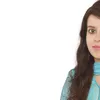Meet Tyler Crowley, the man behind the world’s ‘unicorn factory’, who lives off the grid now
Tyler Crowley is credited for Stockholm’s rise as the startup capital of Europe and the ‘unicorn factory’ of the world. Now living on a remote island in Thailand, he speaks to YourStory about his journey from Los Angeles to Stockholm and India's impact on the startup ecosystem.
Tyler Crowley lives mostly off the grid on a remote island in Thailand. He believes the same technology that has been instrumental in all the advancements we see in our lives today will bring about a “steep decline” in human lives in the not-so-distant future.
His journey from growing up in Southern California, which he says was the “pinnacle of privilege”, to now living on an island in Thailand is a fascinating one.
He is credited as being the force behind Stockholm becoming the startup capital of Europe and the ‘unicorn factory’ of the world (Sweden’s capital city is home to the third-highest unicorns per capita). He is also the man behind STHLM TECH MEETUP, Europe's largest monthly startup event, and STHLM TECH FEST, Scandinavia's largest annual startup event.

Tyler Crowley lives mostly off the grid on a remote island in Thailand.
Speaking to YourStory in an exclusive interaction, Tyler talks about his origins, his journey from Los Angeles to Stockholm to now living off an island on the other end of the globe. He also speaks about the impact Indians are making globally in the startup ecosystem, and if he would be willing to partner with the Indian government to strengthen the local startup ecosystem here.
Edited excerpts below.
YourStory: How, why, and when did you move to Stockholm?
Tyler Crowley: I moved to Sweden towards the end of 2012, around Halloween, to join an agreement with the city of Stockholm to grow the startup ecosystem. I was a consultant.
YS: Tell us about your growing up years in the US.
TC: I grew up in Southern California, skateboarding and surfing. Town wise I moved all over Southern California. I realised later in life that it was pretty much as good as anyone could hope for. I’d call it the pinnacle of privilege.
YS: What kind of work were you doing with the LA ecosystem?
TC: In LA, I had joined a startup early on and we needed to hire 200 developers quickly so my strategy was to go where the developers were meeting. I found out where they were meeting and invited them to meet at our office, as we had a good environment in terms of space and parking, good infrastructure, WiFi, sound system, etc. We had all the rookie developers show up.
We intentionally built that infrastructure so that we didn't have to pay recruiters and headhunters. We tried this hiring strategy repeatedly for different kinds of roles.
Six months later, we had hired the 200 people we needed and then I did not need to host these events anymore. The developers would meet there every night from 6-9 pm. It became a problem after a while because we didn't need them.
A coworking space called Coloft opened across the street, so I suggested we move the meetings there. The coworking space had a 24/7 environment. It created a home for the beginning of our community, our ecosystem.
YS: How did you get into startups?
TC: My friend Jason (Calacanis), who was the founder, was starting Mahalo out of his home and asked me to join. Mahalo was a human-powered search engine that was started in January 2007. I was number five in the company. My role was to do everything there.
YS: Are you are still engaged with the LA startup ecosystem?
TC: Not so much. I still have friends there. I actually haven't been to LA in many years.
YS: Tell us about your educational background.
TC: I studied at the University of California, San Diego. I was the first graduate from a new programme at the university in 2000 where I studied the history of technology, starting with the wheel, the Industrial Revolution, and how it impacts society, etc. This had always been my core interest area.
YS: Tell us about your family and what kind of influence they have had on you.
TC: Only my mom and my dad. My mom is smart and analytical; she was an accountant at a bank.
My dad was an incredibly hard worker and good at working with people. His customers loved him and trusted him. He was a car repair mechanic who had his own business.
He was good at explaining to and educating his customers what was wrong with their car. He’d tell them everything so that they could take the best decision. I inherited a lot of these characteristics; I want people to be informed about different choices and help people make good choices that will empower them. And this creates strong trust. I definitely absorbed that, watching him do that for years. Usually, people take better decisions when they trust.
I combine these traits from my father with my mother's ability to be analytical and very organised. Their influence was organic. They never sat me down and told me anything. It was just learning by observation.
YS: Who or what is your biggest inspiration?
TC: I can’t point at any one thing but I can say my education has inspired me. It has instilled in me a strong desire to figure out what the future is going to look like and the role innovation will play in it, for good or bad. I have a strong curiosity to see what’s over the horizon. And part of that is relevant to why I am in Sweden and where tech is going to be.
YS: Which are the places to watch out for now with regards to technology?
TC: India and China are fascinating to watch at the moment. China is interesting because of how they are using tech and it is what will become more and more common. China is the first to control the way citizens are using tech, in an obvious way. Normally, we think of tech as being a tool of freedom for people; in China, it is the opposite.
The scary part is it can become a growing trend across the globe. America is dabbling in it in different ways. Is what you say to your friend on the phone your data or the government’s? America is now saying, ‘every conversation that happens on our land, that data belongs to us’.
But China is the one that is being obvious about it. Just some time back Apple removed the app that people in Hong Kong were using to organise protests. Why is Apple removing an app at China’s request? China has the influence to get an American company to remove something that is not in their jurisdiction. But I wouldn't call China a villain because they are transparent. However, America maybe because it is doing it in a more covert way.
YS: What is the road ahead for data and tech then?
TC: I think this is going to be a big turning point for a lot of people. Data is going to impact our lives in ways we cannot imagine. A common aspect of tech is that what the creator intended is not what ends up happening. And that’s the reality.
For example, Facebook or Twitter would never have thought they would play any role in any election. However, these unforeseeable consequences of tech are almost guaranteed. Take genetic engineering, for instance.
You think about ending diseases and all kinds of problems with it; at least that is what the creator would have had in mind. However, just as with computer engineering came the menace of viruses, the same could happen with genetic engineering. You will have people creating incredibly deadly viruses that have no cure, are airborne, and incredibly simple to create in the next five years. Technologies have unintended consequences.
We need to see what the real outcomes of our innovation are, as innovators usually never see the negative side of their inventions.
YS: What will be the impact of tech and automation on jobs?
TC: We are already in the next phase and it is happening now. McDonald’s in Norway, for instance, is completely automated. The combination of self-driving cars, automated stores with facial recognition, etc, is going to replace millions of jobs.
We are talking about a lot of jobs. Traditionally, lucrative and secure jobs like family doctors are also going to become redundant because of artificial intelligence (AI).
YS: What is your biggest learning in life?
TC: It is not a coincidence that I am 100 percent off the grid with my own water and electricity. I would like my food to be 100 percent my own as well. I am not optimistic about where things will go in the next 20 years as I think this rather innocent blindness that we all have will, unfortunately, be fatal.
YS: Why are your email and Twitter both named ‘steep decline’?
TC: It relates to the point I am making. I feel like we are creating our own doom. I am constantly looking ahead with optimism but there is an ingrained pessimism. I like to foresee problems. I am not hoping for any but I don't want to be blindsided when I see the horizon and a lot of problems.
Innovation is a tool that can be used for both good and bad. Innovators only see the good and get obsessed with all the beautiful and positive uses of their discovery.
YS: You mostly live in Thailand now. Tell us about that.
TC: Most of the year I am here, yes. Thais are farmers and they know how to use the land and water for generations by living simply. Many still live in traditional tribal environments and they know how to survive off the land. This is something that most Europeans have completely forgotten. Living off the grid is not a new thing. it is the natural way. I predict it will become a very dangerous thing living on the grid.
For me, the most important thing is I am at a place that has water. Most people except those in places like Bengaluru and Johannesburg are not aware of their dependency on water. I added an extra day to a big annual event where I talk about the future of finance, working, living. Believe it or not, the origin of this extra day was about the water shortage in Bengaluru. I became aware that the world is going to run out of water. India, South Africa, and Australia get it.
Then I learnt about the United Nations’ global goals for 2030 where they want to end poverty, end hunger, etc. among 17 others. But the UN is totally disconnected from the Silicon Valley, Tel Aviv, and these other hubs of innovation, and innovators don’t know that the politicians have these plans to solve these global problems. It is the engineers and innovators who will solve these problems.
My audience is innovators and engineers and we have an important role to play in solving global problems like water and hunger. But we are too busy building unicorns. So, in doing this event I started engaging with a lot of NGOs, foundations, and government agencies of different types. I invited them to help explain the problem to this audience of innovators and engineers.

Tyler Crowley predicts that living on the grid will become "very dangerous".
You would think they would be super excited about it, but that wasn’t the case. Unfortunately, in reality, they don’t want to talk to anybody and are afraid of policy, protocol, bureaucracy and more concerned about what they will be wearing and who they’d be meeting.
That’s when I realised that hitting the proverbial iceberg is inevitable. You cannot move fast enough to convince the captain(s) of a ship to get to talk to the people who can help save the ‘Titanic’. This is the reality we find ourselves in.
YS: Coming back to Stockholm, what were the key factors that led to it becoming the ‘unicorn factory’?
TC: You have to start at the beginning. Culturally, Swedes are good innovators and problem solvers and they are good with design. They have the global telecom giant, Ericsson, got good schools that create engineering talent, and fast connections (5G network).
Swedes are masters at making simplified solutions and they were at the beginning of the iPhone or smartphone revolution when it happened. Now that the smartphone revolution is 10 years old, the people who designed solutions for these devices are unicorns.
We are now at the end of the smartphone era so it will be interesting to see which city is best suited to create solutions for the next platform.
YS: And what do you think will be the next big tech platform?
TC: The next platform, some argue, is virtual reality (VR). I would argue that it would be the combination of Apple’s Siri, Google Assistant, and Amazon’s Alexa fighting to put their AI assistant into every device in your home, car, office, and around town so that you have smart offices, homes, and cities powered by their AI.
There are camera algorithms that can identify you based on your walk and how you are feeling. Facial recognition algorithms can tell if someone is homosexual, heterosexual, Republican or a Democrat. They will, in a very short time, be able to detect early-stage Alzheimer’s and Parkinson’s as well.
YS: Before you came to Stockholm what was the startup ecosystem like there?
TC: Similar to LA before we started there. People hiding out in their own corner, doing their own thing, acting more independently but not behaving as a community. There are two fundamentals of a community: does it have a name? And is there a place where I can engage with it?
In LA when we started calling ourselves Silicon Beach, it changed the perception of what is happening there and journalists had something to write. Before I got there the behaviour was much more individualistic; now it is more a group collaboration mindset.

Tyler Crowley was also instrumental in building the Silicon Beach startup ecosystem in LA
YS: Talk a little bit about the impact Indians are making in the Valley and in Stockholm.
TC: When you go into any cafe in San Jose or any of the big tech companies like Yahoo, LinkedIn, Google at lunch time, you wonder where you are because you see so many Indians. Indians didn't start at the top but now you have people from India leading companies like Google and Microsoft. Give it another 10 years and the number of Indians at the helm of big tech companies will only increase.
As far as Stockholm is concerned, I just did a job fair and I was impressed to see that half the audience was Indian. I had not seen that many Indians in Stockholm before.
YS: Your thoughts on the Indian startup ecosystem?
TC: I don't know much about it yet but I would love to come down and get my head around it. Right now, Miss Malini [the Indian blogger, entrepreneur, and digital influencer] and I are talking about doing a hackathon for women.
YS: If the Indian government invites you to come to India to help strengthen the ecosystem, would you be open to it?
TC: I don’t know how supportive the government will be. The best place would be Bengaluru, I think. If they give us a nice venue, we could probably look at doing something. I am totally open to it. The way Sweden benefitted with the smartphone revolution, India could very well benefit from smart city era.
(Edited by Evelyn Ratnakumar)











